We often consider the Korean language one of the world’s most difficult languages to learn, especially for English speakers. It has a reputation for being tough and can be scary for learners.
But learning a new language is always a complex process and takes time, right?
Like any other language, studying Korean has its challenges. So, what makes Korean so hard to learn?
Is this a myth, misconception, mental barrier, or a well-known fact backed with solid research and evidence? And how complicated and easy it may be?
Let’s explore everything about it.
TABLE OF CONTENTS
- Is Korean worth learning despite being tough?
- Things to analyze before diving into Korean
- What makes learning Korean so hard?
- Parting Thoughts in a Nutshell
Is Korean worth learning despite being tough?
Are you thinking about learning Korean?
Perhaps you’ve become enamored with Korean culture and decided to pursue the language.
Maybe the allure of K-dramas and K-movies has piqued your interest in Korean. You may have picked up a few words from the catchy K-Pop BTS songs and are eager to study more.
Whatever the source of fascination with Korean might be, you are not alone. There are many good reasons to learn Korean.
Thanks to the steady momentum of the global Korean wave, i.e., Hallyu, Korean is a trendy language to learn.
And Korean will undoubtedly help you understand and connect with everything Korean!
Korean can also increase your chances of getting scholarships like GKS UG and GKS PG!
Despite not being widely spoken outside of North and South Korea, learning Korean is helpful if you study, visit, work, or live there.
It also opens up a wide range of Korean language jobs. It even assists you in changing your career in various fields if your current one leaves much to be desired.
Isn’t that enough inspiration and incentives to explore the mesmerizing world of the Korean language? If so, let’s roll to the next section!
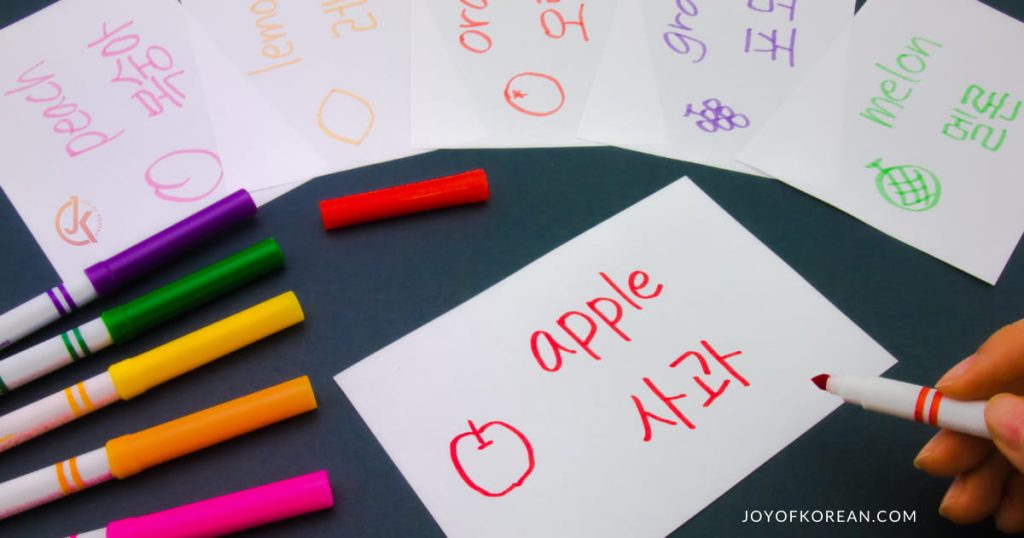
Things to analyze before diving into Korean
Before chalking up plans, it’s essential to ponder your long-term goals and plan for the language.
Do you want to learn just enough Korean to understand music and watch TV shows without relying on subtitles? Perhaps you like to study Korean to watch movies?
Are you thinking about learning Korean to broaden your employment opportunities?
Do you aspire to communicate in Korean with near-native fluency?
The responses to these questions will decide how challenging your language-learning journey will be.
For example, you can learn the alphabet “Hangul” in one day, which can help you read some text in a few days!
However, it may take a few or many years of study to reach semi-fluency in watching K-dramas without subtitles or become a Korean translator.
Many other factors also determine how hard or easy Korean will be, such as your mother tongue, inspiration level, techniques you follow, and how much you study.
That’s why the question, “Is Korean a difficult language to learn?” doesn’t have a definitive answer that fits everyone.
How long does it take to learn?
Many sources claim to place language learning in a definite time frame, but learning Korean takes time. To be perfectly candid, it is a lifelong process.
Mastering a new language isn’t something that can be accomplished overnight.
The beauty of linguistics is that it is constantly changing. New words are added to a language every year, while some become obsolete over time.
Then there is technical jargon, dialects, and your exact goal, which require an undivided focus on specific parts.
Your personal circumstances will shape your language-learning journey. This includes your approach, engagement, and exposure to the language. Your passion and motivation to learn also play a vital role.
And, of course, how close your native language is to your target language.
So, if you already know Chinese and Japanese, you are lucky. But only to a small extent because of geographical proximity and historical roots.
All three are distinct languages. Korean is the most common language isolate. This means it has no traceable connections to any other language.
Suppose English or one of the European languages is your first or native language. In that case, you may have to work harder than the others, as there is almost nothing similar.
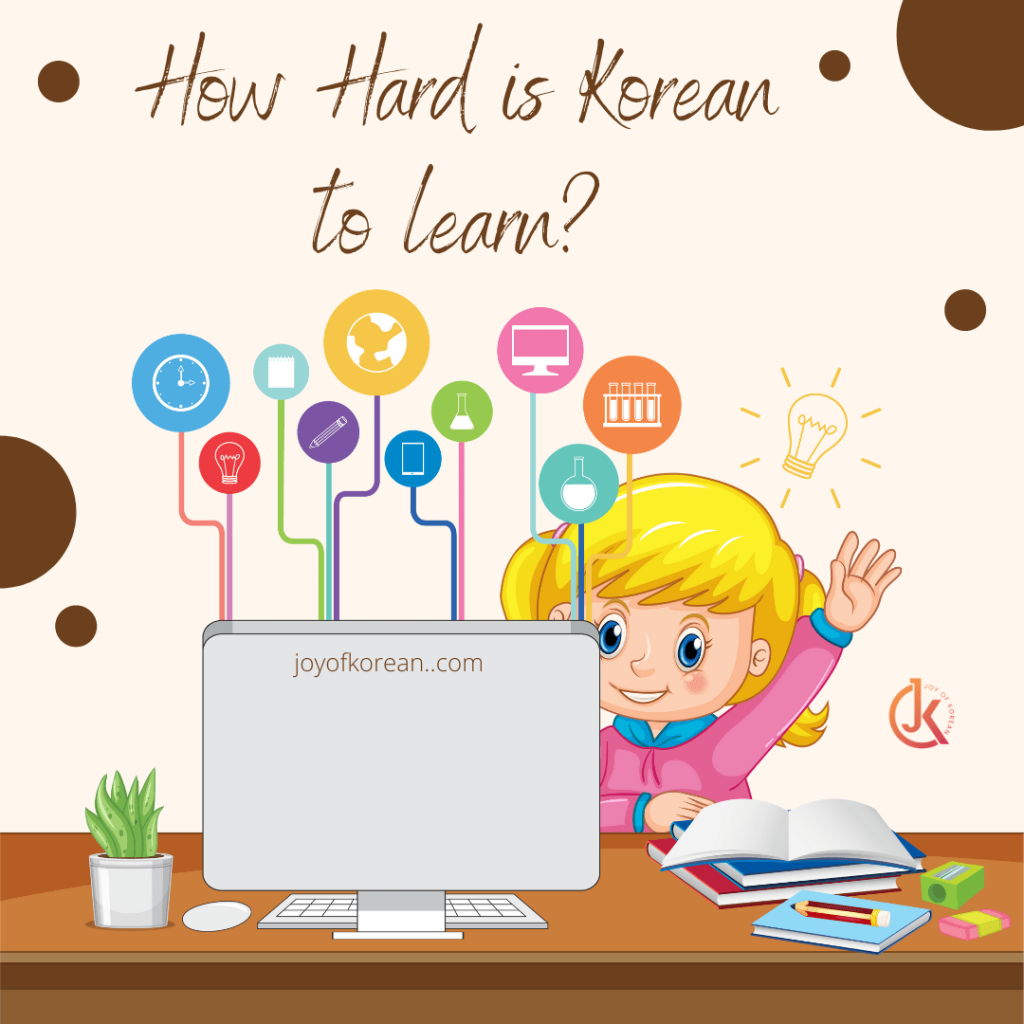
Is Korean more tricky to learn than other languages?
The same conundrum flummoxes many people. So before diving into the language, it’s natural to wonder if Korean is complex.
And rightfully so. I think it’s imperative to decipher the breadth of a language’s learning curve before learning it.
Undoubtedly, having a basic understanding of Korean will help you immensely enjoy the latest K-drama you’re watching. Perhaps the latest K-Pop song you’re listening to is on a loop.
So, coming back to the question: Is Korean hard to learn?
While all languages are tricky to some extent, there is a widespread belief that Korean is difficult.
Who says Korean is difficult?
According to widely acknowledged FSI research, Korean falls under category IV for native English speakers. They classified it as a “super-hard language.” This category includes Arabic, Chinese — Mandarin, Cantonese, and Japanese.
As a result, to speak Korean fluently or achieve levels like TOPIK VI, one needs to study for about 88 weeks or around 2,200 hours.
Adding the suggested 1:1 self-study would require roughly 4,400 hours to reach the advanced level.
Learning Korean isn’t impossible, but it’s not a walk in the park, either. So, to sum up, it is difficult but doable!
If I had to summarize the difficulty level of Korean accurately, I’d say that it is not a language that should be taken up ideally or on the side with the expectation of going far in it.
What makes learning Korean so hard?
People frequently make the mistake of committing to a language before becoming acquainted with it. This means both fundamental and intricate aspects.
Knowing these things assists learners in rationalizing what is difficult for them. And what everyone struggles with.
That said, various reasons make Korean more complex than other languages.
Apart from its very different grammar style from other languages, it also uses extremely foreign vocabulary. Its conjugation has honorifics and delicate nuances, making it more confusing.
All this takes effort, time, and patience to grasp.
This article outlines the concepts that make Korean comprehension complex for new learners. Let’s examine these points in greater detail.

1. It has an exclusive alphabetic system
The first step in studying any language is to become familiar with the language’s basic building block: the alphabet.
Learning a new foreign language with a completely different alphabet system can be difficult. This is specifically for learners whose native language does not follow the same script.
Hangul (한글), the alphabetic system used for writing Korean, differs vastly from English. It contains 24 alphabets, 14 consonants, and ten vowels.
Hangul’s origin story is rather unusual. Most other alphabetical systems have developed naturally. Instead, they invented Hangul with the sole intention of increasing literacy among Koreans.
At first glance, the digits in Hangul appear to be very similar to Chinese and Japanese characters. Still, upon closer inspection, you notice Hangul employs circular loops that are absent from both writing systems.
Although Japanese and Koreans have incorporated Chinese characters into their languages, they have altered the pronunciation to accommodate their respective sound systems.
As a result, knowing Chinese comes in handy when learning Hangul.
Learning to read and write individual Hangul alphabets is pretty straightforward. Reading words is where the problem arises.
Hangul is effortless to memorize logically. However, its appearance and writing style make it a little problematic. This usually happens beyond the initial level.
The convoluted writing style of the Korean
They do not assimilate us with these unfamiliar symbols. The style of writing alphabets arranged compactly in dense blocks is an entirely alien concept to us.
We pen Hangul from left to right and read from top to bottom, an entirely new concept for English speakers.
So, getting up to speed with reading and writing Hangul is familiarizing oneself through daily practice.
2. The Korean word order is different
Learning how to construct sentences is a monumental milestone in language learning.
Yet, speaking and writing fluency in the target language becomes near impossible without a good command over sentence structure.
Inverse sentence structure
Most languages use SVO, i.e., “subject-verb-object structure.” Yet, like other Asian languages, Korean grammar rules differ from English.
For example, in Korean, the order is SOV —“subject-object-verb.” As a result, the entire system feels inverted when compared to English. But you won’t find it uncommon if you already know French, Spanish, or Italian!
If one does not pay close attention to the structure, they will speak strange Korean.
For example, I eat rice will be structured as “I rice eat.”
It may not appear to be a problem in simple sentences. Still, it confuses more difficult sentences as the language progresses. This method of forming expressions requires practice regarding phrases with long subject or relative clauses.
For example, I want to go to the store will be structured as “I store to go, want to.”
The struggle stems primarily from this structure requiring a different way of thinking. But don’t worry—even such a structure will become second nature with time and practice.
We English speakers find this notion peculiar because we state the person or thing we discuss at the beginning of a sentence. In this way, we have established the subject before providing additional details.
The opposite is true in Korean, where all descriptions are present before mentioning the subject. As a result, until the sentence nears its termination, no one knows what Koreans want to say.
The issue arises because this structure causes a different way of thinking.
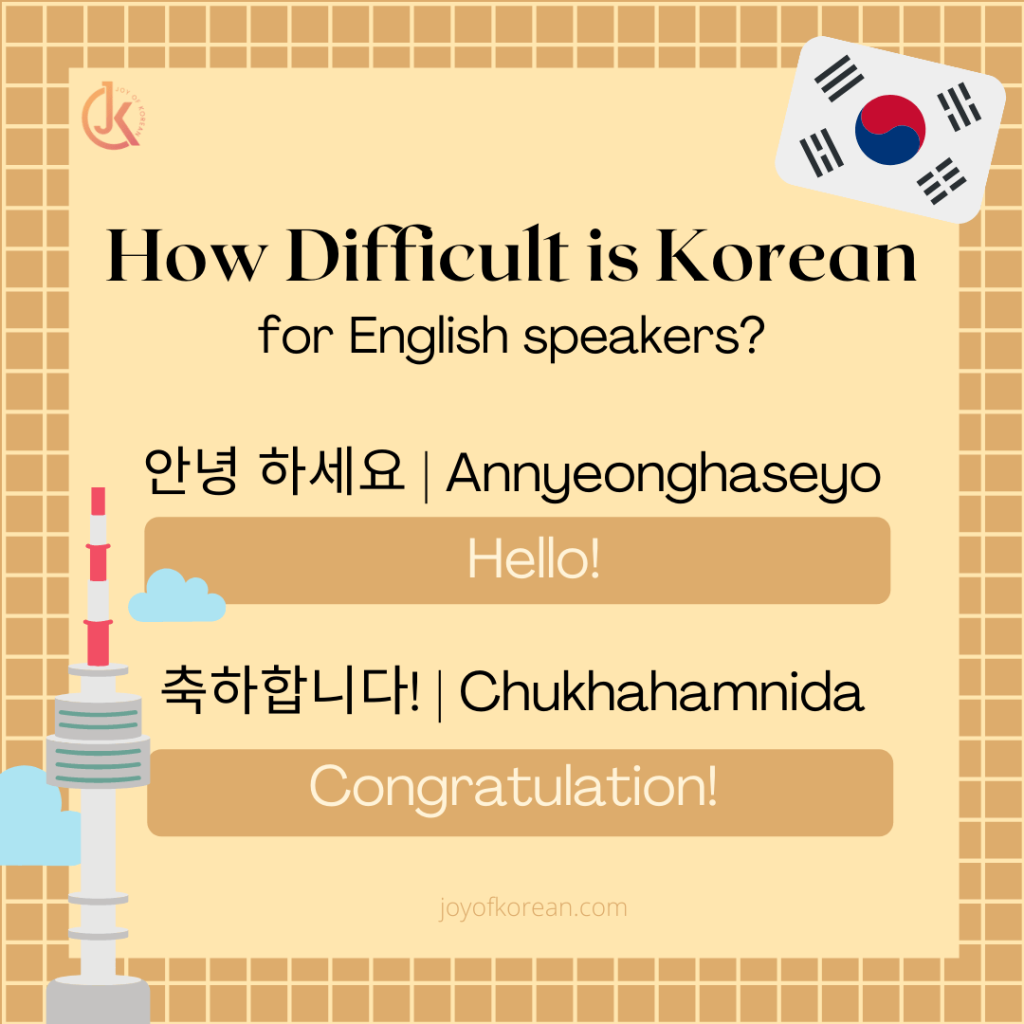
3. Korean is a hierarchical language
The Korean language employs an honorific system. This means that the words, forms, and sentence tone change to reflect. It also recognizes the speaker’s social relationship with the listener/subject.
Pronouns change depending on how close you are to the person you speak with.
Korean pronouns change according to the level of formality. Therefore, it is critical to use the proper pronouns in Korean culture when speaking to someone in a higher position or social status.
Using inappropriate pronouns to address the person you interact with during a formal conversation is strongly discouraged. The idea behind the language hierarchy is to use humble markers to lower oneself.
This honorific system also refers to someone of higher status, not just with. There’s even honorific vocabulary, which uses entirely different words to show tremendous respect.
So, for instance, if you’re having a casual conversation with a friend, bring up your father. Then, the honorific infixes will come into play to show him respect, even if he isn’t physically present.
Aside from honorifics, speech levels also play a role. For example, there are seven levels of formality in Korean. The verb endings of these seven distinct grammatical rules differ as well.
These rules are complicated and tricky to apply, even for people at the intermediate level. Unfortunately, this concept is one of the most difficult phases in everyone’s language-learning journey.
Even in the advanced stages of learning Korean, a working understanding of Korean culture is required.
These comprise manners, etiquette and cultural faux pas. This is to avoid making mistakes when addressing various people in Korean.
4. Korean pronunciation often gets challenging
Korean is a phonetic language whose sound and spelling are inextricably linked. But it’s not that straightforward.
Korean has single and double consonants and a myriad of vowels that can be troublesome for a beginner.
Besides, Korean does not reuse sounds as frequently as other languages, so novice learners have difficulty understanding the complex vowel sounds.
That is one of the reasons NIIED introduced the TOPIK speaking test. This test measures candidates’ verbal ability, which was missing until now.
You may have mastered reading and writing, but speaking, ideally, is an entirely different ball game. Korean sentences also have a unique cadence that can unsettle non-Korean speakers.
Every learner must make an extra effort to apprehend this concept. If your cadence is off, people may find it challenging to understand you.
Owing to the many layers and exceptions to how words are vocalized in Korean, learners frequently face the following problems.
The Homonyms create confusion
The Korean language is full of short or monosyllable words, and their differences are often minute. There is a fact. Many Korean words are homonyms, which does not help the learner’s case either.
A significant stumbling block everyone faces while learning Korean is that many words sound identical. As a result, many simple words get mixed up.
Koreans also have a set of liaison rules that govern how words are pronounced based on the combination of sounds.
The liaison practices occasionally cause some alphabetic enunciation to change. This results in new sounds.
Consider the following rule. A particle that does not follow words that end in a consonant will swallow the final consonant’s sound. This implies that the entire sound will not be pronounced.
This aspiration is difficult for English speakers to interpret at first.
Thus, every learner has difficulty distinguishing between them unless they speak clearly.
To get reasonably comfortable with these words, you may need a lot of listening drills.
Combined alphabets are difficult to pronounce
Another hiccup that learners wrestle with is the problematic enunciation of double letters and triphthongs (a combination of vowels).
While we write Korean letters in separate blocks, we combine some of them and pronounce them together.
On their own, vowels and consonants are pretty easy to pronounce as difficult letters. But their sound blends when used in a sentence and is exceedingly tough to distinguish.
These are the sounds that accustom English speakers on the surface. However, keeping the subtle distinction between the sounds and consonants is tricky.
Stick to the tried-and-tested “listen and repeat” method to make the pronunciation as native as possible.

5. Uncommon Vocabulary and phrases
The vastness of the Korean vocabulary is frequently a source of contention among learners. This is because there aren’t many common words between Korean and English, aside from a few words like sauna, radio, etc.
Korean has borrowed some English and other language loan words. Still, most have a different meaning than the original English word and a Korean-influenced pronunciation.
Konglish is also prevalent and refers to the variety of English unique to Korea. Sadly, this isn’t a standard version and has many errors, and many learners fail to learn the “proper” English.
Take into account loan words like remote control and apartment.
Although the root words are the same, they are pronounced as Rimokon (리모콘) and Apateu (아파트), respectively.
Foreign Words
Most students hit a brick wall when it comes to Korean vocabulary retention.
To the uninitiated, most vocabulary sounds strange. Almost no terms are shared with other languages except for a few loanwords.
There is another factor that makes learning Korean vocabulary more demanding. And that is the lack of a clear connection with existing English words—the same issue with other famous languages such as French and Spanish.
Consider the term “kitchen,” which is called “cuisine” in French and “cocina” in Spanish. Because similar words exist in English, both can be memorized. (Referring to cuisine as food and cooking as in the act of preparing food).
However, the Korean word for kitchen is “bueok.”
Bulky and complex words
Unfamiliar words aren’t the only issue. Adding particles to lengthy words is the most difficult aspect of vocabulary memorization.
When we add particles behind Korean words to express formality, they become even longer, making word recognition arduous.
Before speaking Korean clearly and fluently, you must make mistakes and learn from them. But with so many perks of learning Korean, that would be worth it!
Grammar rules are different
Another disparity between Korean and English grammar is using adjectives as verbs.
Adjectives are not used to describe words in the same way as in English. Instead, an adjective is considered an ‘active state of being’ or a Korean verb.
So, to say “she is pretty,” the sentence would be “she is being pretty.”
To master this concept, practice making sentences a lot.
Use Of Particles
One of the most challenging areas of Korean grammatical structure is the concept of particles.
Because there is no corresponding construct in English grammar. Thus, using particles appears even more perplexing to new learners.
In Korean grammar, particles serve as sentence markers. Therefore, we attach these particles behind words in Korean to show different grammatical functions.
For example, they connote the topic, context, location of the object, and the subject’s possessiveness.
Unless accompanied by a particle, Korean nouns are incomplete. These particles aid in effectively communicating the sentence’s meaning.
Koreans also have a habit of dropping the markers during casual conversations. This makes understanding this concept even more important. Only a thorough grasp of particles can assist you in comprehending what is being said when the particles are not present.
No one can become fluent in Korean unless Korean particles become second nature. Because particles appear in nearly every Korean sentence, knowing how to use them is critical to the success of any Korean language student.
Even seasoned learners often get confused about selecting the appropriate particles.
For particles, practice makes perfect. So, don’t expect to master this concept without investing significant time and effort.
Parting Thoughts in a Nutshell
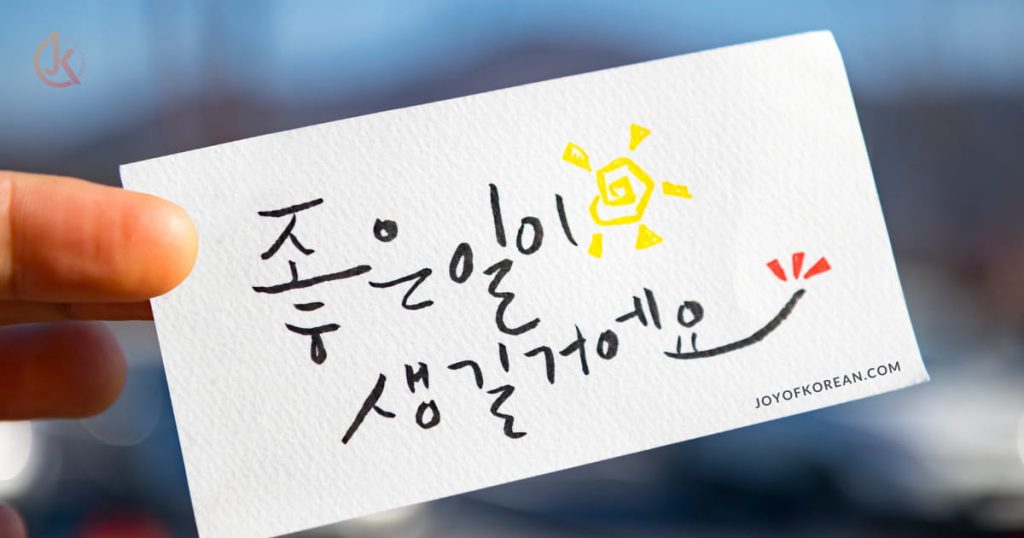
In all honesty, Korean is tricky. It might be regarded as one of the most arduous languages for English speakers to learn, but it is not inconceivable!
So, as long as you’re having fun, don’t worry about the “hours” it takes to gain comfort in the Korean language.
Taking the plunge and beginning a new activity is always intimidating, and learning a language is no exception. After all, learning a language is an enormous commitment in terms of time and effort.
Of course, it isn’t a mammoth task, but it entails some dedication and consistency.
Korean has its fair share of benefits and hurdles, just like any other language.
The payoff for conversing in a foreign language comes along with the disadvantages. This gives you a sense of accomplishment and makes all your efforts worthwhile.
Learning a new language is about patience and building a firm foundation early on. With the right approach and attitude, understanding a new language simplifies.
So, take some steps and put in the effort and time, and your journey to learning Korean will almost certainly become enthralling and intriguing quickly.
I’d like to conclude by quoting a Korean proverb that perfectly captures the experience of learning Korean.
“고생 끝에 낙이 온다,” which translates to “At the end of hardship comes happiness.”
I hope you enjoyed this article. Share your opinions or questions in the comment below.
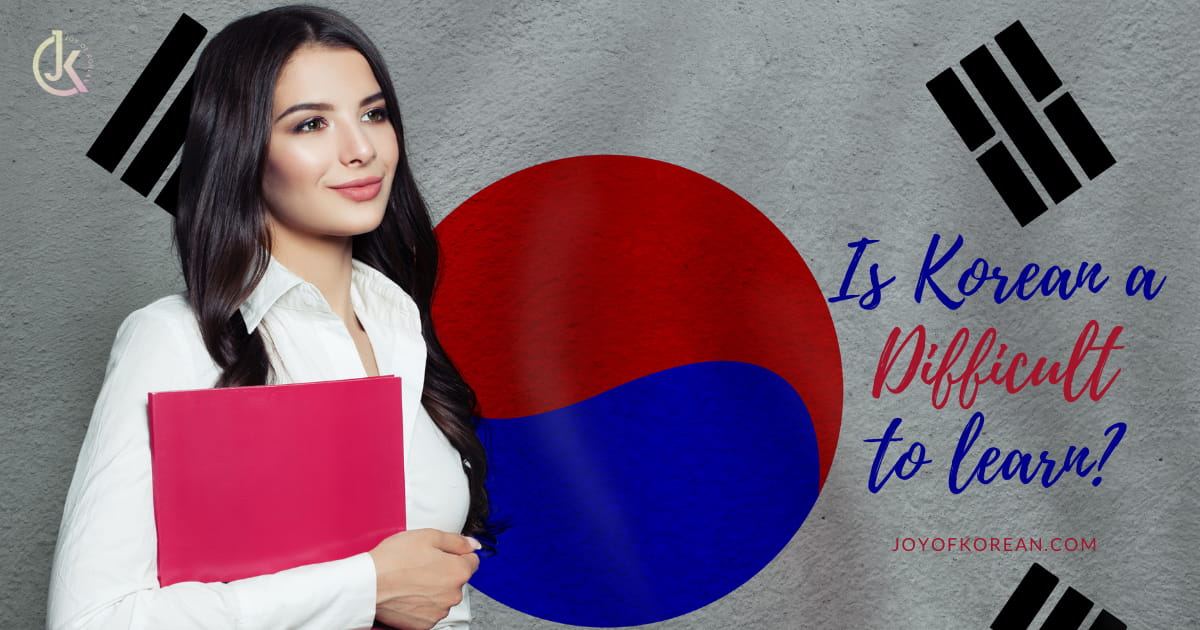


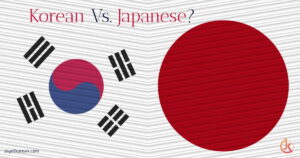


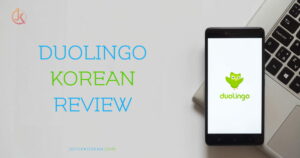





Am so glad to have come across this write-up. It enlightened me more, I am finding it learning the Hangul but now this inspired me and am ready to learn more. Thanks for bringing out time to write this.
Anybody coming to Korean from Japanese will probably expect an easy ride due to the similarities of grammar and the huge shared vocabulary (from Chinese). Sadly, it ain’t. Korean is significantly more difficult than Japanese. Phonetics take a long time to master (many vowels, doubled consonants) and Korean is often spoken fast and in a rather slurred way.
Grammar is nearly the same as Japanese, but still, there is a long adaptation period even when topic markers and SOV come naturally to you. Biggest problem I think is that the Chinese words you expect to be the same in both languages are too heavily camouflaged to be intuitively guessed at. French La decision is clearly decision in English, but kettei (決定) in Japanese is gyeoljeong (결정, 決定) in Korean. It IS the same word, but the phonetic divergence is too great. Worse, Koreans generally refuse to use Chinese characters. Use of Hanja brings written Korean much, much closer to Japanese, to the point where you can gist-read Korean almost without any study. But Hangeul is a nationalist thing, characters being associated with the colonial times. Lastly, forget all you have read about how logical and simple the Hangeul system. Most people who repeat this cannot read or write Korean. In fact, IMHO it is clumsy, complex and riddled with oddities. This is partly because of the changing sound of Korean over 600 years, which Hangeul have not kept up with. It is today effectively an “organic” writing system. It takes years to read it effortlessly (that is due partly to the nature of the language though). Still, Korean would be easier for a foreigner in romaja.